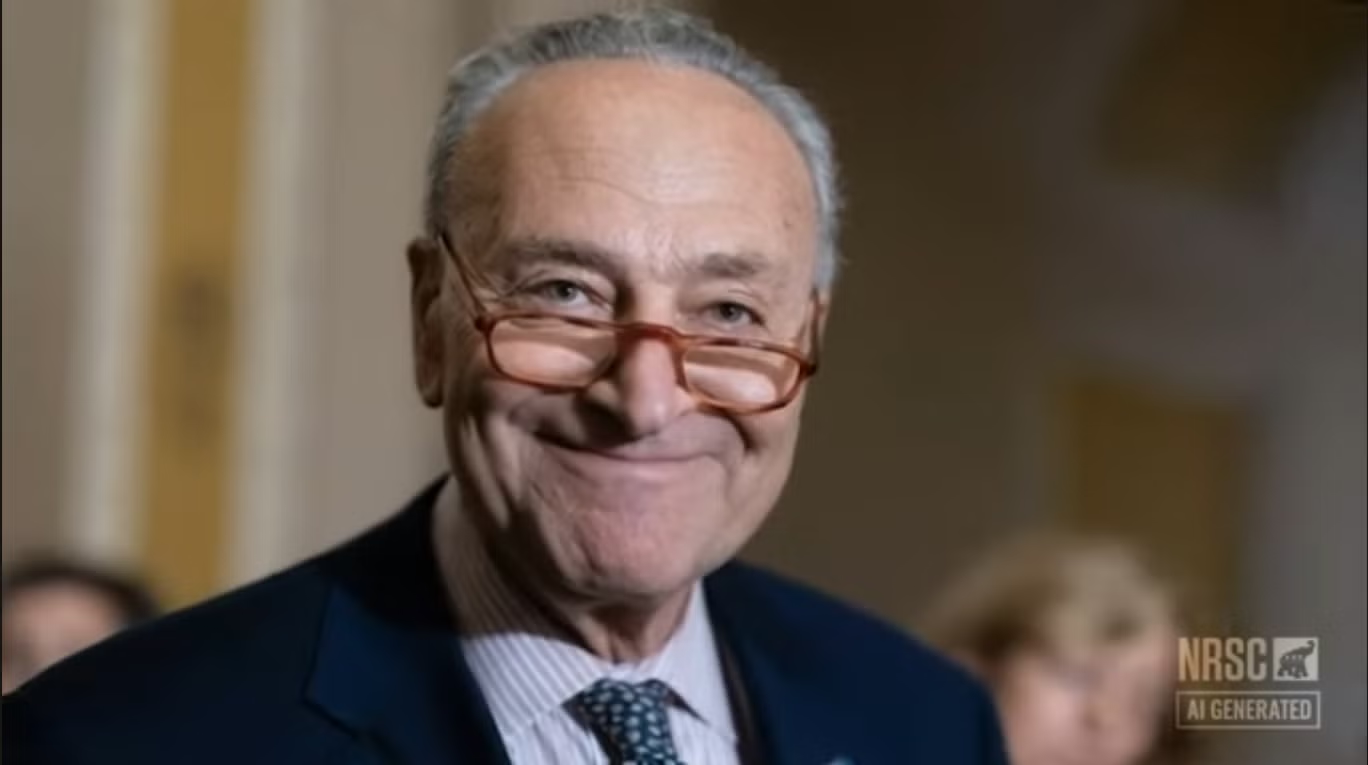Senate Republicans shared a deepfake video of Senate Minority Leader Chuck Schumer. The video was designed to create the false impression that Democrats are celebrating the ongoing government shutdown, which has now lasted for 16 days.
In the manipulated video, an AI-generated version of Schumer repeats the phrase “every day gets better for us.” This is an actual quote from the senator, but it was taken out of context from a Punchbowl News article. In the original story, Schumer was discussing the Democrats’ healthcare-focused strategy for the shutdown. He stated that Democrats would not back away from what he described as the Republicans’ playbook of threats and attempts to mislead.
The government shutdown is a result of Democrats and Republicans failing to agree on a bill to fund the government through October and beyond. Democrats are fighting to preserve tax credits that would lower health insurance costs for millions of Americans. They are also seeking to reverse Medicaid cuts implemented under the Trump administration and to block proposed cuts to government health agencies.
The deepfake video was posted on Friday to the Senate Republicans’ official account on the platform X. According to X’s own policies, the platform prohibits the deceptive sharing of synthetic or manipulated media that is likely to cause harm. This harmful content includes media that could mislead people or cause significant confusion on public issues. The platform’s stated enforcement actions include removing content, applying warning labels, or reducing a post’s visibility. As of this writing, X has not removed the deepfake video or added a warning label, though the video does include a small watermark indicating its AI origins.
This is not the first instance of X allowing deepfakes of politicians to remain on its platform. In late 2024, X owner Elon Musk shared a manipulated video of former Vice President Kamala Harris in the lead-up to the election, which sparked a debate about misleading voters.
Laws regarding political deepfakes are evolving. Up to 28 states have enacted laws that prohibit deepfakes of political figures, typically focusing on campaigns and elections. However, most of these laws do not impose an outright ban if the media includes clear disclosures. States like California, Minnesota, and Texas have specifically banned deepfakes that are intended to influence elections, deceive voters, or harm candidates.
This recent post follows an incident weeks earlier where former President Donald Trump posted deepfakes on Truth Social. Those videos depicted Schumer and House Minority Leader Hakeem Jeffries making false statements about immigration and voter fraud.
When faced with criticism about the lack of honesty and ethics in using such technology, Joanna Rodriguez, the National Republican Senatorial Committee communications director, responded by saying, “AI is here and not going anywhere. Adapt and win or pearl clutch and lose.”

